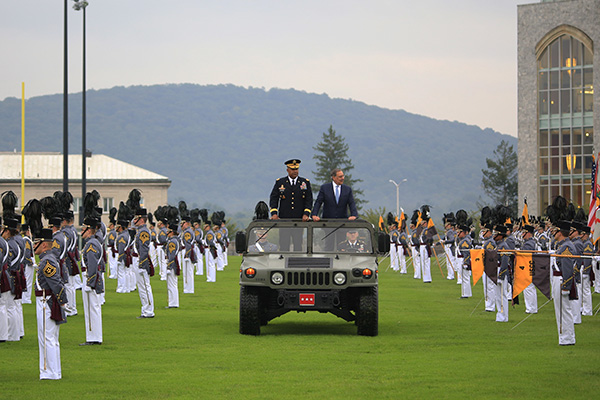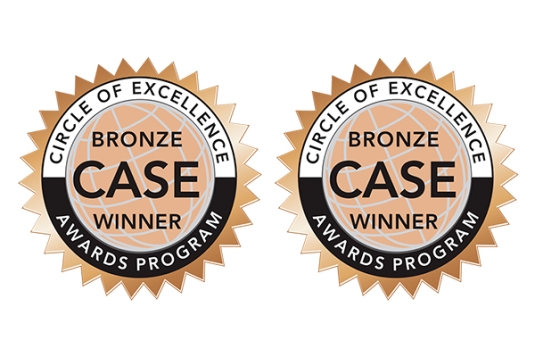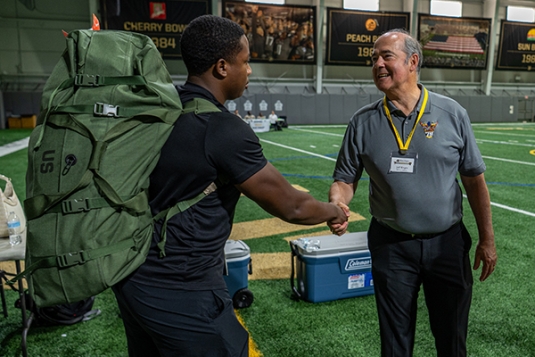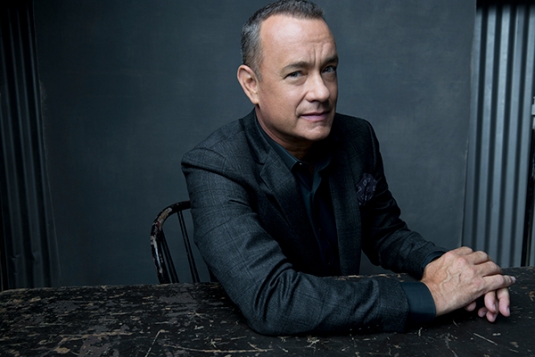The Honorable Leon E. Panetta—the 23rd U.S. Secretary of Defense, 3rd Director of the Central Intelligence Agency, 18th White House Chief of Staff, and Chairman of the Panetta Institute for Public Policy—became the 61st recipient of the annual Sylvanus Thayer Award, accepting the award at a formal dinner in the West Point Mess Hall on October 4. Since 1958, the West Point Association of Graduates has presented the Thayer Award to an outstanding citizen of the United States whose service and accomplishments in the national interest exemplify personal devotion to the ideals expressed in the West Point motto: Duty, Honor, Country.
“From the halls of Congress to the Pentagon, and in many places in between, Secretary Leon Panetta has dedicated his life to selfless service for our nation and truly embodied the principles of this Academy,” said Superintendent Lieutenant General Darryl Williams ’83, upon introducing the 2018 recipient.
In his remarks before the presentation, West Point Association of Graduates Board Chairman, Lieutenant General Joseph E. DeFrancisco ’65 (Retired), said, “In receiving the Thayer Award, Secretary Panetta joins a diverse array of significant Americans—renowned scientists, astronauts, esteemed members of the clergy, and members of Congress—and his name on the West Point Thayer Award plaque greatly enriches the prestige of our alma mater.”
“I am so proud to be part of the history and tradition of West Point,” said Secretary Panetta in his acceptance speech, but he downplayed his five decades of service to the nation, and instead accepted the award on behalf of the 2002 Thayer Award recipient, the American Soldier. “For more than two centuries, our democracy has survived because of our soldiers’ commitment to Duty and Honor and Country.” He then challenged cadets to continue to fight for democracy in America and the values and principles upon which America was founded: “freedom, liberty, equal justice, opportunity, a respect for one another regardless of color or creed or faith or gender, of honest leadership committed to a government of, by, and for all people.” “You are warriors,” Secretary Panetta said to the cadets, “and you understand that your duty is not just to fight for your country, but to make sure that you fight for a country that is worth fighting for.”
Prior to the medal award ceremony, Panetta, like all distinguished Thayer Award recipients before him, had the opportunity to troop the line with the Superintendent during a review of the Corps of Cadets assembled in formation on the Plain in his honor. “The review was fantastic,” Secretary Panetta said in a press interview before the dinner ceremony. “For all those who may be frustrated at times with what’s going on in our country, I think our greatest hope was on that field with those cadets.”
Announcement
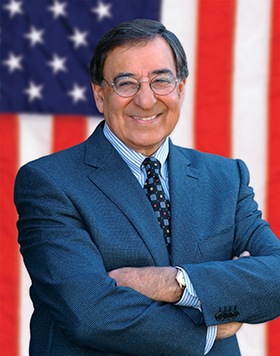
May 7, 2018
West Point, NY: The West Point Association of Graduates is pleased to announce that Leon E. Panetta—23rd U.S.Secretary of Defense, 3rd Director of the Central Intelligence Agency, 18th White House Chief of Staff, and Chairman of the Panetta Institute for Public Policy—will receive the 2018 Sylvanus Thayer Award. The award will be presented on October 4, 2018 during ceremonies hosted by the Superintendent of the U.S. Military Academy at West Point.
West Point Association of Graduates Board Chairman Lt. Gen. (USA, Ret.) Joseph E. DeFrancisco, Class of 1965, said, “The West Point Association of Graduates is honored to present the Thayer Award to Secretary Leon E. Panetta. His distinguished public service career has spanned five decades, starting in 1964 as a U.S. Army intelligence officer, to time as a Congressman, to leading several national agencies and serving in high-ranking positions for two U.S. Presidents, through today as Chairman of an institute devoted to attracting men and women to lives of public service. Having Secretary Panetta forever associated with West Point through the Thayer Award speaks directly to its purpose of recognizing a citizen of the United States, other than a West Point graduate, whose outstanding character, accomplishments, and stature draw wholesome comparison to the qualities for which West Point strives. His life of service to our nation truly exemplifies the West Point values of ‘Duty, Honor, Country.’”
“I thank the West Point Association of Graduates for this distinguished award,” said Secretary Panetta. “I am honored to be recognized among those men and women who have dedicated their lives to the values of West Point: Duty, Honor, Country.”
Leon E. Panetta was born in Monterey, California and raised in the Monterey area. In 1960, he graduated magna cum laude from Santa Clara University in California, and received a juris doctor from Santa Clara University School of Law in 1963. A year later he joined the U.S. Army, commissioning as a second lieutenant of the Military Intelligence Corps and receiving the Army Commendation Medal for his service. After the Army, he became a legislative assistant to Thomas Kuchel, the U.S. Senate Minority Whip from California. In 1969, he was appointed director of the Office of Civil Rights in the Nixon Administration.
After returning to California to practice law, Panetta was elected in 1976 to represent California’s 16th Congressional District, starting a 16-year career in Congress. As a legislator, Panetta became a respected leader on agriculture, federal budget, ocean and healthcare issues, and from 1989 to 1993 he chaired the House Budget Committee. He won passage of the Hunger Prevention Act of 1988, Medicare and Medicaid coverage of hospice care for the terminally ill. Panetta left Congress in 1993, when President-elect Bill Clinton selected him to serve as director of the Office of Management and Budget.
President Clinton approached Panetta again in 1994 to become his new chief of staff, a position he held until January 1997. As chief of staff, Panetta was credited with bringing order and focus to White House operations and policy-making. After serving in the White House in 1997, Panetta and his wife Sylvia founded the Panetta Institute for Public Policy on the campus of California State University, Monterey Bay. The Institute is a nonpartisan, not-for-profit study center that seeks to attract men and women to lives of public service and prepare them for the policy challenges of the future.
In 2009, President-elect Barack Obama nominated Panetta to be director of the Central Intelligence Agency, where he worked with international leaders to confront threats of Islamic extremism and the Taliban, and supervised the operation to find and bring the international terrorist Osama bin Laden to justice. Two years later, President Obama nominated Panetta as Secretary of Defense, where he led efforts to develop a new defense strategy, conduct critical counter terrorism operations, strengthen U.S. alliances, and open military service opportunities to Americans regardless of gender or sexual orientation.
In 2014, Panetta published his memoir Worthy Fights: A Memoir of Leadership in War and Peace, a chronicle of his life in public service. In his review for the New York Times Book Review, Leslie H. Gelb wrote, “Young people searching for a role model of a public servant will find few as good as Panetta.”
Panetta currently serves on the boards of directors for Oracle and Blue Shield of California. He also serves as co-chair of the Bipartisan Policy Center’s Defense Personnel Task Force and the Center for Strategic and International Studies Commission on Countering Violent Extremism.
Speech
West Point, NY
October 4, 2018
Thank you for your kind introduction and good evening to all of you.
I am truly humbled and deeply grateful to the West Point Association of Graduates for honoring me with the Thayer Award. To all of the members of the Association here with us tonight and to all of your distinguished members, thank you for all you do to support this great American institution of our democracy.
I also want to thank the Corps of Cadets for the extraordinary display of pageantry and military precision we all witnessed today. You put on a hell of a show.
As the son of Italian immigrants, I can’t tell you how humbling it is to be included on the roster of recipients of this award, many of whom represent some of the greatest legends of our times: presidents, generals of the Army, secretaries of states, secretaries of defense, the first man who walked on the moon—all distinguished public servants. I am so proud to be part of the history and tradition of West Point.
But for my part, I want you to know that I accept the Thayer Award on behalf of the winner from 16 years ago: The American Soldier. Because I know that at this very hour, in a dangerous and lonely corner of the globe, there are soldiers standing watch, ready to fight at a moment’s notice to defend America’s security and preserve the blessing of liberty for all of us.
For more than two centuries, our democracy has survived because of the soldier’s commitment to Duty, Honor and Country. We have preserved because in every generation there have been brave men and women willing to step forward and give something back to the nation. And those men and women helped America lead a family of nations that worked and fought together to provide security in a dangerous world.
I have always believed in the responsibility to serve, to give back to the nation because of what this country has meant to me and because of what it meant to my family.
We had a tradition in my family of all gathering for dinner on Sundays. My parents would make clear to my brother and I that we had a duty to give something back to this country, which gave them so much.
I was proud to serve as an Army officer for two years—went through ROTC at Santa Clara University and received both my degree and my commission on graduation day. I was particularly pleased because my father was there—he had served in the Italian Army during World War I, was wounded in a brutal battle of the Piave River—he taught me about duty, about right and wrong, about hard work and sacrifice.
Some of my earliest memories as a young boy were of that Italian restaurant my parents ran in downtown Monterey during the war years. As a boy, I can remember standing on a chair in the back kitchen of that restaurant washing glasses—my parents believed that child labor was a requirement in our family. After the war, he sold the restaurant and he bought a farm in Carmel Valley, planted a walnut orchard. Again, my brother and I worked hard alongside my father—hoeing, pruning, irrigating—as the walnuts grew bigger my father would use a pole and hook, shaking each of the branches, and my brother and I were underneath each tree picking up the walnuts. When I got elected to Congress, my father said, “You know, you’ve been well trained to go to Washington because you’ve been dodging nuts all your life.”
Throughout my life, I have never forgotten the faces of the GIs my parents served in that restaurant during the war. Thousands were training at a local base, Fort Ord, for the battlefields of World War II. My parents would invite many of these soldiers to our home for the holidays. I had a chance to see them and talk with them as they prepared to ship off to war, not knowing whether I would ever see them again.
They came to Monterey from across America, like all of you—from small towns and big cities, from the heartland and from the coasts. They were young and full of hell but they were ready to go halfway around the world to fight against a great evil that had attacked our country and invaded our closest allies. They knew they might never come home but they also knew that they were serving a cause greater than themselves.
The faces of those young soldiers never left my memory, particularly when as CIA Director and as Secretary of Defense I had to make decisions that would send brave young men and women into harm’s way…warriors fighting to preserve our country and the American Dream.
I used to ask my father, “Why would you travel all of that distance to come to a strange land?” They came from a poor area in Italy, but they had the comfort of family, and like millions of other immigrants they had little money, no skills and little language ability. There were no Google maps, no GPS, no Internet. They had no idea what this strange land would be all about. Why would you leave everything you had, everyone you knew to go to a faraway land? I never forgot my father’s response: “Because your mother and I believed we could give our children a better life in this country.” And that, ladies and gentlemen, is the American Dream. It’s what we want for our children and hopefully what our children will want for their children.
But my parents also taught me that dreams are just dreams unless you are willing to work hard, to sacrifice, to take risks, to never give up, to fight and never stop fighting until your dreams come true. I had a Jesuit at Santa Clara who said to me, “Leon, God gave you life, but it is up to you to make a life.” To make the point, he told this story of the rabbi and the priest.
A rabbi and a priest decided they would get to know each other better and go to events in order to understand each other’s religion. One evening they went to a boxing match and just before the bell rang one of the boxers made the sign of the cross. The rabbi nudged the priest and asked: “What does that mean?” The priest replied, “It doesn’t mean a damn thing if he can’t fight.”
We bless ourselves with the hope that everything is going to be wonderful in this country and somehow our democracy will survive, but it doesn’t mean a damn thing unless we are willing to fight for it.
Those are the values I was raised with, the values of our forefathers, of the pioneers, of the immigrants. The values of love of country, of honesty, of respect for one another, of sacrifice and hard work. They are the values that made America the greatest country on earth.
You, the cadets of the Long Gray Line, follow in a long tradition of those who have been willing to fight and to die for those values and for that country. You are warriors who understand that your duty is not just to fight for your country, but to fight to make sure that your country is worth fighting for—an America that always remains true to its founding principles of freedom and liberty for all, of equal justice, of opportunity, of respect for one another regardless of color, creed, faith or gender, of honest leadership committed to a government of, by and for all people. The leadership you learn here at West Point is not just for war, it is for country.
I often tell the students at the Panetta Institute that in a democracy, we govern either by leadership or by crisis. If leadership is there and willing to take risks associated with leadership, and make no mistake about it, if you are going to be a leader, you’ve got to take risks, if you are willing to exert that kind of leadership, we can avoid crisis.
But, if leadership is not there, then we will inevitably govern by crisis. But there is a price to be paid for doing that, and that price is the loss of trust of the American people in our system of democracy…because in a democracy, trust is everything.
Here at West Point, you are learning to lead soldiers into battle…that takes leadership, it takes trust, and it takes the ability to work as a unit. You too come from across America. You reflect the rich diversity that is America. But as warriors, you must fight as one—trusting one another, watching each other’s back, never leaving a comrade behind. You are the embodiment of the motto of our nation, “E pluribus unum,” out of many, one.
Alexis deTocquiville, the French philosopher, who came to this country in the early 1800s to see for himself what this young nation was all about, found an America of vastly different communities and people spread out across the vast frontier. But he found one quality in America that was not present in his native Europe, and that was a sense of community, of caring for one another, of working together. He said, “American is great because America is good…and if America ceases to be good, America will cease to be great.” Our challenge today is to work together, despite our differences, as one—on the battlefield, in our communities, and in our nation.
A few weeks ago, I attended the memorial service for Senator John McCain. I worked with John for over 40 years, in the Congress, when I served in the executive branch, and particularly as Director of the CIA and the Secretary of Defense. He died deeply concerned about our country, about the tribalism and partisanship tearing it apart. He fought for this country and loved it with all his heart. But, he was worried about whether the leadership of the nation could find the courage to work together at home and in a dangerous world.
I don’t have to tell any of you: we live in a dangerous time. I have never seen the collection of threats and challenges in the world that I see today: terrorism, ISIS, Boko Haram, al Shabaab, Syria, Iran, North Korea and a new chapter of the Cold War with Russia, increasing tensions with China, cyber-attacks threatening our democratic institutions and our stability.
In the face of these threats to our security, America must provide the essential leadership that we have provided since World War II, to work together with our allies in the world. We do not have to choose between whether we work with our allies or whether we protect our interests. It is the high of patriotism to protect the interests of our country by working with our allies to protect our security in the world. You don’t have to make a choice between those two. Our interests in the world are essential to our ability to protect our interests. The reality is that if the United States fails to provide leadership in a troubled world, no one else will.
The history of West Point is the history of heroic leaders responding to national crisis—to regional wars, to a civil war, to world wars, to natural disasters. I believe in American leadership. Why? Because of each of you—because of your spirit, resilience, common sense, courage, dedication to Duty and Honor and Country.
As secretary, I saw those values in the men and women willing to put their lives on the line, to fight and die for our country. I looked into their eyes on the battlefields of Iraq, in Afghanistan, at the bases in the Middle East from which they deployed into action, in North Africa, and throughout the world. I saw it in the eyes of those brave special forces involved in the raid on Bin Laden. Let me just say a few words about that raid.
It was after 10 years of failed efforts to locate Bin Laden that our intelligence finally located a compound in Abbotobad at the end of a dead-end street. It looked like a fortress: 18ft high walls on one side, 12ft walls on the other, a 7ft wall on the balcony of the third floor where a mysterious family was located, high security, barbed wire, no phone services, no Internet. They used to drive 90 miles away to make a phone call. We did heavy surveillance, six months of surveillance, trying to see if we could see Bin Laden. There was a “walker,” an older gentleman, who would come out of the compound, walk in circles like a prisoner, and disappear back into the compound. I told my CIA officers that it was critical to get a facial ID of the “walker.” They said it was difficult to do because of the compound’s security. I said I’ve seen movies where the CIA could do this.
We never got 100-percent ID, but we kept piecing together intelligence. Finally, the President ordered that we prepare an operation. I turned to Admiral Bill McCraven, head of Special Forces, who developed a plan called “Neptune Spear”: two teams of special forces on two helicopters, going 150 miles into Pakistan, at night, getting to the compound, repelling down into that compound, and going after Bin Laden if he was there…a risky mission.
The President ordered the operation. As we tracked the helicopters, one of them, because of the heat that day, stalled. Thank God there was an experienced Army warrant officer, part of the NightStalkers, the 160th Special Operations Air Regiment, who was able to set the copter down. I asked Admiral McCraven, “Bill, what the hell is going on?” Not missing a beat, he said not to worry, backup helicopters, two Chinooks, were on the way, the mission would proceed, the walls would be breached. They did. We heard gunfire, and then there was about 20 minutes of silence…probably the longest 20 minutes of my life…and then McCraven came on the line and said, “I think we have a ‘Geronimo,’” which was the code word for getting Bin Laden, and a few minutes later he said, “We have a ‘Geronimo.’” That night, after the White House had announced the mission to the American people, crowds gathered in Lafayette Park and on the east side of the White House, and they were yelling, “USA…USA…CIA…CIA.” It proved that because of the bravery of our Special Forces and our Intelligence personnel that we sent an important message to the world: nobody attacks the United States of America and gets away with it…Nobody.
Before I left the job as CIA Director to become Secretary of Defense, I visited Khowst Afghanistan where we had lost seven CIA officers to a suicide bomber who turned out to be a double agent. I brought with me a plaque that I put on the wall, it is the same plaque I gave to each of the families of the fallen, that contained a verse from Isaiah, chapter 6, verse 8: “And then I heard the voice of the Lord saying, ‘Whom shall I send? Who will go for me?’ And then I said, ‘Here I am Lord. Send me. Send me.’”
Ladies and gentlemen, that is the sound of the trumpet that calls all of us to duty. And by your very presence here, cadets at West Point, it is clear to me that you have responded to the call of that trumpet.
At the Pentagon, as Secretary, I had no more solemn responsibility than to sign the deployment orders that sent men and women into harm’s way. And every time I signed those orders, I said a silent Hail Mary and prayed they would all be returned home safely to their families. Unfortunately, as we all know only too well, those prayers are not always answered.
I have gone to Dover Air Base too many times to greet our fallen heroes, to console their families, to mourn their loss. But it is in their memory that we fight, and fight on because that is exactly what they would want us to do.
As I said in the beginning of my remarks, in honoring me, I ask you to honor the American soldier…the soldier in each of you. You have responded to the call of the trumpet—“Send Me”—and now your duty is clear: to serve America with honor, to make sure that it never ceases to be good, to protect that American Dream of my parents, to make sure we give our children a better life in this country, and to keep our great country—of, by, and for the people—safe and secure. And very frankly, none of this means a damn thing if you are not willing to fight for it.
God bless you and God bless our country.
Biography
Leon Panetta co-founded the The Panetta Institute for Public Policy with his wife Sylvia in 1997 upon completion of his service as White House chief of staff in the Bill Clinton administration. He co-directed it with her until 2009, when he left to serve as CIA director and then secretary of defense under President Obama. He returned to the Institute as chairman in 2013.
A Monterey native and Santa Clara University School of Law graduate, Secretary Panetta began his public service career in 1964 as a U.S. Army intelligence officer receiving the Army Commendation Medal. Upon discharge he went to work in Washington as a legislative assistant to U.S. Senate minority whip Tom Kuchel of California. In 1969, he was appointed director of the U.S. Office for Civil Rights, where he was responsible for ensuring equal opportunity in public education, and later he served as executive assistant to the mayor of New York City. He then returned to Monterey, where he practiced law until his election to the U.S. House of Representatives in 1976.
Serving his Central Coast district in Congress for sixteen years, Secretary Panetta became a respected leader on agriculture, federal budget, ocean and healthcare issues, and from 1989 to 1993 he chaired the House Budget Committee. He won passage of the Hunger Prevention Act of 1988, Medicare and Medicaid coverage of hospice care for the terminally ill, and numerous measures to protect the California coast, including creation of the Monterey Bay National Marine Sanctuary.
In 1993, Secretary Panetta left Congress to serve as director of the Office of Management and Budget for the incoming Clinton administration. There, he was instrumental in developing the policies that led to a balanced federal budget and eventual budget surpluses. In 1994, he accepted appointment as the president’s chief of staff, and is credited with bringing order and focus to White House operations and policy making.
Upon leaving the Clinton administration in 1997, Secretary Panetta joined with his wife Sylvia to create and co-direct The Panetta Institute for Public Policy, based at California State University, Monterey Bay. Reflecting the Secretary’s ideals and personal example, the nonpartisan, not-for-profit study center seeks to attract thoughtful men and women to lives of public service and prepare them for the policy challenges of the future.
Secretary Panetta returned to public service at the start of the Barack Obama administration as director of the Central Intelligence Agency, where he supervised the operation to find and bring the international terrorist Osama bin Laden to justice. Then, as secretary of defense, he led efforts to develop a new defense strategy, conduct critical counter terrorism operations, strengthen U.S. alliances, and open military service opportunities to Americans regardless of gender or sexual orientation. He chronicles his life in public service in his best-selling memoir Worthy Fights, which was published by Penguin Press in 2014.
Over the years Secretary Panetta has served on numerous boards and commissions. He co-chaired California Forward, the Joint Ocean Commission Initiative, and Governor Schwarzenegger’s Council on Base Support and Retention. In 2006 he served on the Iraq Study Group, a bipartisan commission seeking a new course for the war in Iraq. At present, he serves on the boards of directors for Oracle, Blue Shield of California and as co-chair of the Bipartisan Policy Center’s Defense Personnel Task Force and the Center for Strategic and International Studies Commission on Countering Violent Extremism.
Secretary Panetta is the recipient of hundreds of awards and honors. Recent examples include the California Teachers Association’s Friends of Education Award; the Judicial Council of California’s Stanley Mosk Defender of Justice Award; the Harry S. Truman Good Neighbor Award; the Sons of Italy Foundation’s National Education & Leadership Award; the Peter Benchley Ocean Award for Excellence in Policy; the Intelligence and National Security Alliance’s William Oliver Baker Award; the OSS Society’s William J. Donovan Award; and the National Defense Industrial Association’s Dwight D. Eisenhower Award.

